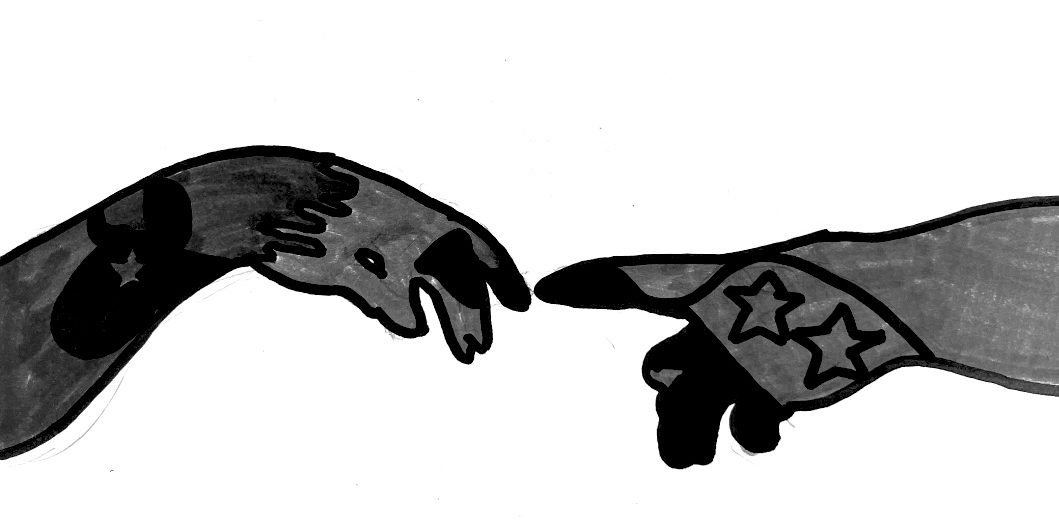Since 1958, the establishment of the Redwood Bark has provided a platform for student journalists to investigate the world around them and express their opinions on anything and everything, from the ear-piercing craze of the ‘80s to the politics of the Reagan administration in 1967. In the Redwood community, exercising freedom of expression hasn’t been exclusive to the Bark staff—from the very beginning, letters to the editor have been encouraged from students and faculty. In the early years of the Bark, from 1958 to 1962, nearly every issue contained one or more letters to the editor, a concrete indication of student involvement with a traditional form of media.
Letters to the editor are an opportunity for any member of the Redwood community to respond to an article or articulate their opinion about a topic. A blurb is published under every editorial that reads, “Have an opinion regarding anything that appears in the Bark or in general? We encourage our readers to submit letters to the editor.” Although certain requirements must be met, such as including the author’s name, this platform provides an open space for the expression of unique ideas, thoughts or contributions.
Within the last few years, however, student engagement with the Bark has noticeably declined, as measured by a lack of submission of letters to the editor, which may be representative of the overall trend of adolescent apathy toward more traditional forms of media.
This disengagement between our newspaper and its readers is alarming, not just because of the potential decline in readership, but also because young adults should be just as involved in current events as older generations. According to a 2009 Pew Research survey, younger Americans (ages 18 to 34) are not as knowledgeable about the news as are Americans over 35. The younger age group should be the most active and up-to-date on current events, as they have the most power to affect change.
Ironically, one of the first letters to the editor, published in 1958, was from a student who was concerned about the lack of involvement by the junior class when voting in the school elections.
“The obvious disinterest of the class in class activities may stunt the growth of an otherwise flourishing Redwood tree. Can we let this happen?” the anonymous writer said.
The most recent letter to the editor from a student appeared over two years ago, in the December 2015 issue of the Bark, and it addressed another political opinion, in this case an article proclaiming that political correctness was impeding social progression. Since then, only a singular letter from a teacher has been published, which corrected an ambiguity in a previous article.
A flood of increasingly popular social media platforms may be at the root of this apathetic attitude. Political views are often expressed in the comments section of Instagram or as a subtle retweet from a prominent political figure, not in a full-length letter addressed to the school newspaper.
According to a research article from Sage Journals by Alcides Velasquez, the perceived impermanence of social media may provide a possible explanation for the frequent use of non-traditional platforms as a method of expression. She claims that the many different kinds of social media that are available make it possible for a user to alter their attitude towards a topic depending on the audience.
“Through the selective contribution of specific types of content, they express themselves and construct an identity of themselves for their audience,” Velasquez said. On the other hand, writing an actual letter carries much more clout, as it can’t be edited or deleted after it has been shared—this lends weight to the views expressed and encourages students to carefully consider what they are writing.
A possible explanation for why there’s been a decline in student engagement could be that a widely circulated publication isn’t seen as the ideal place to convey one’s political sentiments or opinions, particularly if they are considered controversial in an area that isn’t shy about its political affiliations and convictions. However, letters to the editor are open-ended—it isn’t required to express any kind of ideology, and more often letters address articles having to do with localized subjects. Despite the publication of controversial pieces in the Bark, including articles criticizing curriculum, challenging widely-accepted views and addressing prevalent issues, since 2015 they have failed to garner significant responses from the student body. The Bark welcomes, even encourages, responses to the works published—reactions mean we are reaching people.
Reluctance to send in letters is not only significant to the Bark establishment, but to our generation’s future as well. In the next senate election, which will take place in November of this year, a large amount of current Redwood students will be eligible to vote. If we can’t count on the student body to engage with their peers in a newspaper, how can they be expected to put forth the enthusiasm, the passion and the determination to become full-fledged members of a politically active and aware society?








